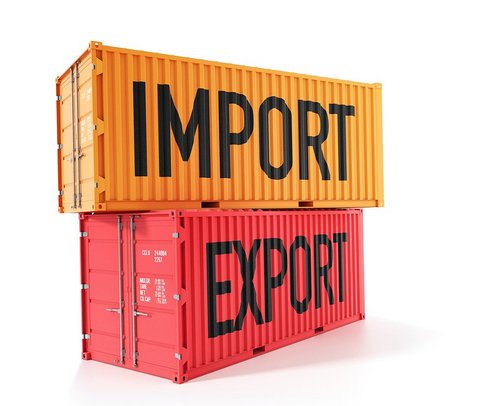The chances of economic recession, both internationally and at home, have recently been weighed more heavily by experts in the financial markets. The shift in perspective follows the imposition of new tariffs this week by the Trump administration, and has prompted some of the world’s biggest brokerages to revise their economic outlooks.
Brokerages Adjust their Recession Probabilities
For example, JPMorgan massively upgraded its global recession estimate at the end of the current year to 60% from 40% previously. The brokerage firm had “disruptive U.S. policies” as the top concern, and cited the country’s trade policy — which has turned inhospitable to business. In short, the ruling raises doubts that the tariffs will deliver the benefits that the administration had hoped — and argues they may do just the opposite: prompt new retaliation from U.S. trading partners, lead to a slide in business confidence in the United States and disrupt supply chains that are now well ensconced.
Others in the financial community have updated their outlooks to reflect heightened recession risks in the U.S.- S. P. Global, for example, raised its subjective U. S. recession probability to 30 percent to 35 percent, from 25 percent in March. Goldman Sachs, similarly, upped its chances of a U.S. recession to 35 percent from 20 percent ahead of the most-recent tariffs, as it expressed increasingly concern with the state of underlying economic fundamentals. Now here in Alabama high this may now also mask a risk this also it is perhaps partly so it starts to relate to potential lift period as rise in the Washington appears potential.
Other research firms, including Barclays, BofA Global Research, Deutsche Bank, RBC Capital Markets and UBS Global Wealth Management, have also warned about the increased danger that the U.S. economy will tumble into a recession this year if the new tariffs remain in place. In fact, some of those institutions — including Barclays and UBS — have even cautioned that the U.S. economy could slide into a contraction.
Impact on Equities and Growth Forecasts
Tariffs both imposed and pending have become a page turner in equity markets. U.S. equity markets sold off from their embedded levels since the tariff announcement in January after a rally in the equity markets in November when Donald was elected president. Reports say the S&P 500 index is down more than 8 percent year to date.
These and recession fears have caused some brokerages to cut their year-end targets for U.S. stocks. Of the major brokerages, Capital Economics has slashed its target the most, cutting its forecast for the S&P 500 index to 5,500, the lowest of any major brokerage. RBC Capital Markets closely follows with a 5,550 target. UBS is growing more cautious: It’s also cut its recommendation on U.S. stocks to neutral from attractive.
Analysts have also revised down their estimates for economic growth in the United States. Some be more $0.1-$0.2 to $1.5 to 1% modest growth
Anticipated Federal Reserve Response
Although the tariffs stand to work against economic growth, some analysts said the shift gives the U.S. Federal Reserve more room to further cut rates to boost it. The impact from the initial tariff shock is partially offset by the expectation of more rate cuts, JPMorgan said.
Goldman Sachs now forecasts three cuts by the end of the year from the Federal Reserve, up from two cuts in its previous forecast before the most recent tariff announcements. Nomura and RBC, meanwhile, are now looking for one and three cuts, respectively, when they previously anticipated no rate cuts at all. UBS expects interest rates to drop by 75 to 100 basis points for all of 2025. Citigroup has remained more aggressive with 125 basis points of cuts beginning in May and JPMorgan is still counting on two 25-basis point cuts. Expectations of investors, based on data collated by LSEG, now show 100 basis points of rate cuts priced in for 2025.
The new tariffs have prompted global brokerages to reassess their views of the economic outlook, with the risk for a global recession and one in the U.S. now considered much more likely. Such concerns arise from fears that trade frictions could escalate to the point of endangering business confidence, supply chains and economic growth. Consequently, equity market targets have been reduced, while the timeline for cuts from the Federal Reserve has been pulled forward as a potential offset to the impending headwinds to growth. Life will look quite different on the stock market as traders will stick to their guns closely monitoring the situation to see just how these evolutions of trade policy play out in the global and domestic economy.






